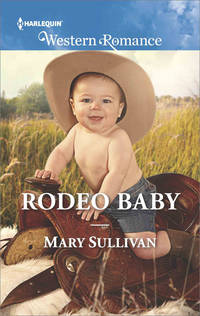
Полная версия
Safe in Noah's Arms
It wasn’t something she deserved just because her name happened to be the same as that of the town’s founding father. Nor because she had money and he didn’t. She had no right to his conversation or his inner thoughts because she hadn’t earned them.
“I talk when I have something important to say.” Damn. He hadn’t meant to sound so cold.
He felt her withdraw. He needed to monitor his responses and treat her better. He wasn’t mean-spirited. Not usually. Her scent, so different from his own, filled the cab. “Why do you smell different today than yesterday?”
“You noticed?” She sounded surprised. “I thought it was a subtle change.”
“It is subtle. I mean, it’s like you changed your perfume, but didn’t. Like it’s the same perfume, but slightly different. Yesterday, it smelled more citrusy, like lemon, and today it’s more...not quite floral, but sort of like bergamot.”
When she didn’t respond, he glanced away from the road for a second to find her staring at him with her mouth open.
“I’m impressed, Noah.” She nodded slowly. “Seriously impressed. You have a sensitive nose. That’s exactly the change I made.”
“Say what? The change you made? What do you mean?”
“I make my own perfume.”
“You do?” She kept surprising him, piquing his curiosity. “I’ve never known anyone who made their own perfume.”
“I’ve been experimenting with different essential and natural oils.”
“Why? There are a million perfumes on the market.”
“I know, but I haven’t found one that suited me perfectly. There’s always something wrong with them, or something missing. Or, they’re way too strong. I like concocting original, personal scents.”
“So you added bergamot to the perfume you were wearing yesterday?”
“I have a base perfume that I’ve been slowly working on. I have several different mixtures going at any given time.”
“Why bergamot?”
“Because I like it in Earl Grey tea. It’s fragrant and floral without being sickly sweet.”
“You know, I have wildflowers in my fields.”
“What kind?”
“All kinds. You should check them out.”
“May I steal some?” May I, not can I. Perfect grammar again. He liked it.
“Of course. I also grow herbs.”
“You do? You grow them fresh on the farm?” She sounded excited.
“Yep.”
She was silent for a while and then asked, “Will you teach me about them? Help me learn to recognize them?”
“Sure.”
Silence fell again.
“May I turn on the radio?”
He nodded and she fiddled with the knobs. The cab filled with music, but she kept the volume turned low, sort of as background filler.
“So these are people who don’t have enough money to buy their own groceries?” Monica asked as they approached the small Keil ranch.
“The Keils are having trouble making ends meet right now.”
“Why? Is the father crippled or something?”
Noah tensed. “Nothing so Dickensian. Robert has been hanging onto his small ranch for years. He’s a hard worker, by the way.” A note of defensiveness had crept in.
Flatly, Monica replied, “I didn’t say he wasn’t.”
“Rich people—” he glanced swiftly down at the designer jeans she wore “—often assume that anyone out of work or hungry is just lazy.”
She stared out the window, but said, voice low and quiet, “Noah, please stop making assumptions about me. You don’t know me.”
His conscience pricked, he relented. “Fair enough. I’m sorry.” He found he was sorry in truth. They had to get along—they were stuck with each other. And this roller coaster of flaring and abating tension would exhaust them both.
She deserved an explanation. Maybe then she would understand how a simple family managing all right could suddenly find themselves in dire straits through no fault of their own. A reversal of fortune could happen to anyone. As he thought about it more, he realized that Monica probably would understand, because hadn’t Billy’s death been a reversal of fortune for her? Her fortune being her happiness?
“Robert was hanging on, doing all right for himself and his family, when his wife got ovarian cancer. Kayla beat it. She’s in remission. But the medical bills just about bankrupted them. I imagine they’ll be paying for years.”
“Oh.” Monica’s voice sounded small. “I remember Kayla from high school. She was a year or two behind me.” Then she appeared to have a thought. “They own land. Why can’t they grow their own vegetables?”
A reasonable question. “Kayla kept a large kitchen garden before the cancer, but the illness depleted her energy stores. She’s just now getting back to a semblance of normalcy. There’s only so much Robert can do. He has his own chores caring for the cattle and planting the big fields with feed. He can’t also be maintaining the kitchen garden.”
She seemed to be thinking hard.
“The problem for most people,” he explained, “especially small farmers and ranchers, is that they live close to the edge. If something happens, a child gets sick, or we have a really dry summer, they have no buffer. Nothing to fall back on.”
“Are there lots of families like that around?”
“More than you’d think. Things got real bad in 2009 with the recession. Economy’s picked up a bit since then, but not enough. People have their pride, too—which is another problem. They don’t always ask for help, then suddenly you hear they’ve gone bankrupt, or lost the ranch, or moved away for no apparent reason. I don’t want to see that happen to the Keils. They’re good people who’ve lived here for generations.”
He turned up the long driveway. The house and grounds were clean and tidy.
The last time Noah had been here was late last autumn when he’d brought a couple of boxes of root vegetables to get them through the winter. He’d helped Robert fill the old root cellar. They’d have surely eaten those vegetables by now.
He glimpsed the herd in the pasture, noticeably smaller than last summer. Robert was either selling off cattle, or slaughtering and eating them. Probably both. You can’t make money on slaughtered cattle, but a family’s got to eat.
Monica retrieved one of the boxes of food from the back.
“You sure you don’t want to wait here?” Noah held his breath. Now that she’d put him in his place, he found he was doing a one-eighty. He wanted her to visit with the Keils, wanted to make these people real to her, make this more than court-ordered community work. He needed her to understand why this was important.
“I’ll come in.”
Yes. Noah released his breath. Monica had more backbone than he’d given her credit for. Or maybe it was just morbid curiosity.
Robert and Kayla greeted them at the front door with their three young children.
Like the house, the children were clean, but their clothing had seen better days.
Kayla was thin. She used to be a round, jolly woman. Now, her blouse hung from too-slim shoulders, but she offered them a smile and a welcome.
Noah noticed Kayla checking out Monica’s clothes and wished she’d worn something other than designer jeans and suede loafers. Even her attire for the farm was more expensive than the average person’s. Did Monica own anything cheap? Not likely.
At least she smiled at Kayla and said hi.
Despite Kayla’s discomfort—she looked intimidated by Monica—the woman invited them in for coffee. Some people never failed to impress Noah. This was why he raised crops for those less fortunate than himself—because of grace, and because these were good people who deserved a break.
After setting the box of food on the kitchen counter, Monica accepted a cup of coffee. Kayla handed Noah a cup and he sipped. Weak as dishwater.
They all sat at the kitchen table. Conversation was scarce and awkward. Monica gave Kayla surprisingly good ideas for using the garlic scapes, nothing that would cost the family much to implement.
Kayla blurted, “I’ve been looking for work, Noah. Robert and I won’t have to depend on you forever.”
“Hey, that’s great. What kind of job are you looking for?”
Kayla’s fingers worried the hem of her blouse. “Simple things. I was a cashier at the grocery store when I married Robert. I’ve been home with the kids ever since.”
Noah didn’t respond, didn’t want to dash Kayla’s hopes. She’d been out of the market for, at a guess, ten or so years, and her skills were limited.
Monica and Noah rose to leave.
Noah said goodbye and left the house. Monica whispered something to Kayla before she followed him to the car.
Whatever she’d said to Kayla had put a smile on the woman’s face.
In the truck, he asked, “What was that about?”
She fiddled with the air vents to get a breeze blowing her way and flicked on the radio again, with the volume low. “What was what about?”
“What did you whisper to Kayla to make her so happy?”
“I told her I had a dress I didn’t want anymore and I would bring it out to her for her job interviews.” She buckled herself in and they left the property, driving down the highway toward the next delivery. “I’ll bring her some makeup, too.”
“That’s really something.” Noah couldn’t hide his surprise. “That’s really nice of you.”
“I’m not the monster you think I am.”
He tensed. “I never said you were a monster.”
“Oh, please, Noah,” she scoffed. “You think I’m vain and selfish.”
“Yeah. So?”
He expected her to take offense, but she chuffed out a laugh. So, Miss Monica had a certain level of self-awareness of how she was perceived by others. “Honestly, Noah, you’re too blunt. Thanks for the boost to my ego.”
The interior of the truck heated with the goodwill emanating from Monica. She had a sense of humor about herself. Noah would have never guessed. He liked teasing her. “Hey, I believe in being honest.” He softened that with a smile in his voice.
“I like good clothes and nice things, but I’m not selfish.”
“No, I guess not.” Noah smiled at her, momentarily in harmony with a woman who wasn’t as bad as he had assumed.
His perception of Monica shifted.
The next family they visited had had a string of hard-luck events that had left them destitute.
“This damned economy.” Back in the truck after the visit, Noah pounded his fist on the steering wheel. “When will this recession end?”
Monica remained silent, a thoughtful frown furrowing her brow.
They made one more stop, again staying for coffee.
Truck empty and produce gone, they headed home.
Monica stared out the passenger window at the passing scenery.
Noah hoped she’d learned a few good lessons today.
As though she sensed his regard, she met his gaze. “You’re doing this all wrong.”
He choked on his saliva. When he finished coughing, he stared at her. “Wrong? What the hell are you talking about?” Honest to God, he was a peace-loving guy, but she made his blood boil.
Frowning, she admonished, “Watch your language.”
He ignored that, dealing instead with the salient points. “I feed the hungry. I work my fingers to the bone to help the poor. I wear cheap clothes, not designer duds.” His disgusted glance raked her body.
“Keep your eyes on the road,” she said, calm despite his raised voice. “It isn’t safe to look at your passenger while you’re driving.”
“Says Ms. DWAI. Oh, pardon me, Ms. Wet Reckless.”
She pressed her hand against her stomach. “That’s a low blow. I told you I’ve never done it before and I never will again.”
“I don’t care. Why did you say I’m doing this all wrong? What, in your not-so-humble opinion, am I not doing right?”
“First of all, we shouldn’t have had coffee at those houses.”
“Oh, that. Yeah, I’m wired on caffeine, but I don’t want to hurt their feelings by saying no.”
“I don’t mean that.” She flipped hair out of her face with an impatient hand. “Coffee and tea are expensive. If they can’t afford vegetables, they certainly can’t afford to replace whatever meager supplies of coffee they might have. We’re robbing them of a treat for themselves.”
He hadn’t thought of that. She was right. Both were expensive commodities. Suddenly he got a terrible feeling maybe they kept them on hand just for his visits.
“Also...”
“There’s more I’m doing wrong?” He didn’t bother to quell the sarcasm in his voice. He didn’t believe in sarcasm, liked to deal with people honestly, but she’d just blown his decency out of the water. Doing it all wrong, my ass.
“You shouldn’t deliver the groceries to them—”
“Some families are too embarrassed to drive into Denver to the food bank, not to mention using gas.”
“I can imagine. I would be, too. What I meant to say, before you interrupted me so rudely, was that you shouldn’t deliver the groceries when they’re home. Deliver them when they’re sleeping or when they’re at work or church or something.”
She’d snagged his curiosity. “Why?”
“Those visits were brutally difficult. All of that awkward small talk. We’re not meeting them as equals. It’s not a social visit. They were chagrined that we were there delivering charity to them.”
“So?”
“So-o-o...” She exaggerated the word, as though speaking to a child. The woman knew how to get his dander up. “If the visits are hard for us, imagine how hard they are for them. If you’re delivering food once every week or two, then you’re drinking their coffee and embarrassing them on a regular basis.”
Even though it hurt his pride, he admitted she was making sense.
“Plus,” she said with such emphasis he grew wary, “you’re not doing enough.”
“What?” She’d poleaxed him again. Swear words bounced around inside his head like pinballs. “Are you kidding me? How can you say that? I work from dawn ’til midnight every day. I’m doing all I can.”
“I know you work hard.” She patted his arm.
“Don’t condescend to me.” He sounded fierce.
“Sorry. I hate when people do that to me. I won’t do it again.” She removed her hand. “You do great work, Noah, but you could do more.”
“More?” Heat blazing through him like a bonfire, his tone could char toast. Her criticism was so damned unfair. “I work my butt off fourteen hours a day. I do the work that everyone should be doing, but hardly anyone does—caring for my fellow man and the environment. This stuff should be universal. It should come naturally to everyone. But I’m the only one in this community out here doing it day in and day out.” He poked himself in the chest so hard it hurt.
She opened her mouth to speak, but he ran roughshod over her. Not doing enough, my patootie.
“If that sounds arrogant or self-righteous, too bad. I have more passion about these issues in my baby finger than you do in your whole body. I believe in peace and love and communal property and service for the greater good. You believe in clothes, fancy cars, Calvin Klein—”
She gasped. “I never wear Calvin Klein—”
“—and rampant consumerism. You’re the most shallow person I know.”
Only when silence filled the quiet cab did Noah realize he’d been shouting, his last sentence ringing like the bong of a brass bell, its echo still reverberating like a heartbeat.
Oh, geez, that was bad. He shouldn’t have been so harsh. Honesty was a good thing, but not when it devastated another soul...
Tentatively, he glanced at Monica.
She stared out the passenger window, her blond hair falling forward and hiding her face.
Oh, sweet freaking crap. He’d hurt her. He didn’t do that to people.
Noah struggled to calm his thundering pulse. Sure, he had no patience for excess and waste and hunger and poverty, but he never lashed out at individuals unless they were doing truly egregious things. He never spoke this harshly. He never insulted people or called them names.
She’d been getting under his skin since she’d stepped onto his farm and started ripping out tender plants instead of weeds.
He’d learned, as Audrey had said, that it was easy to underestimate Monica. While she might have an uncomplicated soul, she wasn’t stupid. On the other hand, she had no right to criticize him. He did a world of good for those in need while she sat at home and painted her fingernails pink or, worse, paid someone else to do it.
While Kayla struggled to feed her family, Monica probably had weekly manis, pedis and whatever else people did at spas.
Breathing deeply of the warm air flowing through his open window, he pulled himself under control. His anger was doing neither of them any good.
He heard her sniff and a surge of remorse flooded him.
He placed his fingers on the cool skin of her arm, but she jerked it away from him and shrank against the car door.
“I’m sorry. Really. Don’t cry.”
She rounded on him, red spots on her high cheekbones. “I’m not crying. I’m angry.” She leaned toward him, straining against her seat belt. “I do a lot more than you give me credit for. You’ve always thought you were better than me.”
“What? It’s the other way around,” he yelled. He jabbed a finger her way. “You think you’re better than me. You’ve got it backward.”
“I do not,” she responded hotly. “I think you’re hardworking and smart. You think I’m lazy and stupid. So who thinks he’s better than whom?”
Okay, so maybe he did think she was lazy and did nothing much outside of shopping and pampering her body. He knew she and his mom liked to go to spas together. It was like Mom had adopted her as another child. And yeah, he might think Monica was lazy. How hard could working in a gallery be?
He mimicked her in his mind. Who thinks he’s better than whom? It was petty, but it felt good. As quickly as his indignation flared, it abated. Her shot had been a bull’s-eye. He did think himself superior to her, and to all of her kind.
And that was wrong. He needed to see her as an individual, and he needed to remember that he trusted Audrey’s opinion. If she saw more in Monica than what was on the surface, he should, too. Besides, he had seen glimmers of depth in her today.
His righteousness deflated.
“Tell me,” he said quietly.
“Tell you what?” Her body language still screamed that she was a prickly, angry woman.
Other than eating crow, which he wouldn’t do, the only way to appease her was to listen. “What else could I be doing?”
For a long time she sat without speaking and he feared he’d hurt her so much she wouldn’t respond. Now that the heat of his anger was spent, he wanted to know what she thought.
“Tell me,” he urged, touching her arm again, and this time she didn’t pull away. Her soft skin warmed his fingertips. “I want to know.”
“Fund-raise,” she said. “Raise money so you can deliver meat and diapers and lots of other stuff with the vegetables and eggs, including a few luxuries like coffee and tea. Maybe even deliver seeds in the spring so they can grow their own stuff.”
She was right, damn her.
“I don’t think I’m qualified to fund-raise,” he responded.
“I am,” she said and he heard in her a confidence that was missing on the farm.
“How so?”
“I was tutored by the best fund-raiser around.”
When he looked at her questioningly, she said, “Believe it or not, my dad. He might look like he does nothing but sit around all day and have lunch at the country club, but boy, does that guy know how to network.” She lifted the hair from the back of her neck where a sheen of sweat glistened, her arms strong and firm, and her breasts high. Noah glanced away before he started some pretty hot daydreaming. “When I was little, he took me with him everywhere. I watched and listened and learned. I could set up a charity event in Denver that would bring in big bucks.”
Noah snorted.
Monica shot him a look. “Really, Noah, that’s uncouth. If you don’t believe me, just say so.”
“I don’t believe you can do it.”
“I can.” She sounded huffy, indignant, and he found it far too cute, so cute he wanted to provoke her further.
“How do I know it wouldn’t be a waste of time?”
“You’d have to trust me.”
Ah, there was the rub. He’d trusted before and where had it gotten him? Screwed, royally, by a woman just like Monica, a woman who walked, talked and spoke like Monica...and who schemed like the devil.
“Wouldn’t it be a lot of work?”
“Yes. Dad worked his tail off when he raised funds, but he also had a host of women organizing the events, women with wealthy husbands, who donated their days to running charities. Lucky for you, I still know all of them.”
The desire to do more and feed more people threaded tentacles of temptation through him. “You would do all of that work for my charity?”
She looked surprised. “Of course. Why wouldn’t I? I like this helping-people business, Noah.”
A gentle, satisfied smile spread across Noah’s face. “So do I.” And it felt fabulous to share that with someone. So good, in fact, he was willing to eat crow after all and admit he had a thing or two to learn about charity from Monica. In his hubris, he’d thought the learning would go only one way.
* * *
ON MAIN STREET, Monica headed for the organic market, Tonio’s, hoping to figure out what she’d have for dinner.
Until a year ago, it had been called the Organic Bud, but the Colantonios had since bought it. Now, along with local organic produce, they had introduced a lot of international products.
Monica loved shopping here.
As an Accord living in the town named for the founding father, her ancestor, she had always felt apart from most people. She had never had Billy’s easygoing personality that drew people to him.
Her natural reserve had gotten in the way of her being a real part of this town. She could never figure out whether people liked her, or were awed by her background, or wanted to cozy up to her father’s wealth.
But the owner of Tonio’s was a friend, Maria Colantonio, a woman not much older than her with whom Monica had formed a bond over a love of good food. With Maria, she felt at ease. Maria liked her for herself, no doubt about it. For that, Maria had Monica’s undying affection.
“Hey, Maria,” she called to the open indoor window of the office through which Maria watched the store. “What’s good today? I have fresh asparagus and garlic scapes.”
Short, round Maria ran down the four steps out of the office, clapping her hands. An attractive woman, her deep-set brown bedroom eyes lit up. “You have scapes already? Where did you get them?”
“Noah Cameron’s farm.”
“Oh, that guy.” Maria flipped her hand in a disparaging gesture.
“He’s a good guy.” After watching what Noah did for local families, and seeing how much they appreciated him, Monica felt compelled to defend him. Lord knew why, except that maybe she was developing an appreciation for his charity, even if he was doing it all wrong. “He does good work.”
“Oh, I know. He’s wonderful.”
“Then why do you seem disgusted by him?”
“Because he won’t sell me his lovely vegetables! He’s the only one around here growing organic. He could make a fortune selling to me, but he gives it all away.”
“For the needy.” A swell of warm, fuzzy pride arose in Monica that she was helping him. But she was also proud of Noah, that he had the guts to buck financial common sense and everyone who screamed at him that he could be making money, so he could feed people in need. She smiled. “He’s a decent guy.”
Maria sighed. “Oh, I know, I know, but you have garlic scapes and I don’t and I’m jealous.” She laughed and directed Monica toward the meat counter.
“Joseph,” she called to her husband. He came out from the back, where he butchered meat. Big and handsome, he carried his dark Italian good looks humbly.
Maria surveyed the meat on display and ordered, “Give Monica a couple of those nice thick center-cut pork chops.”








